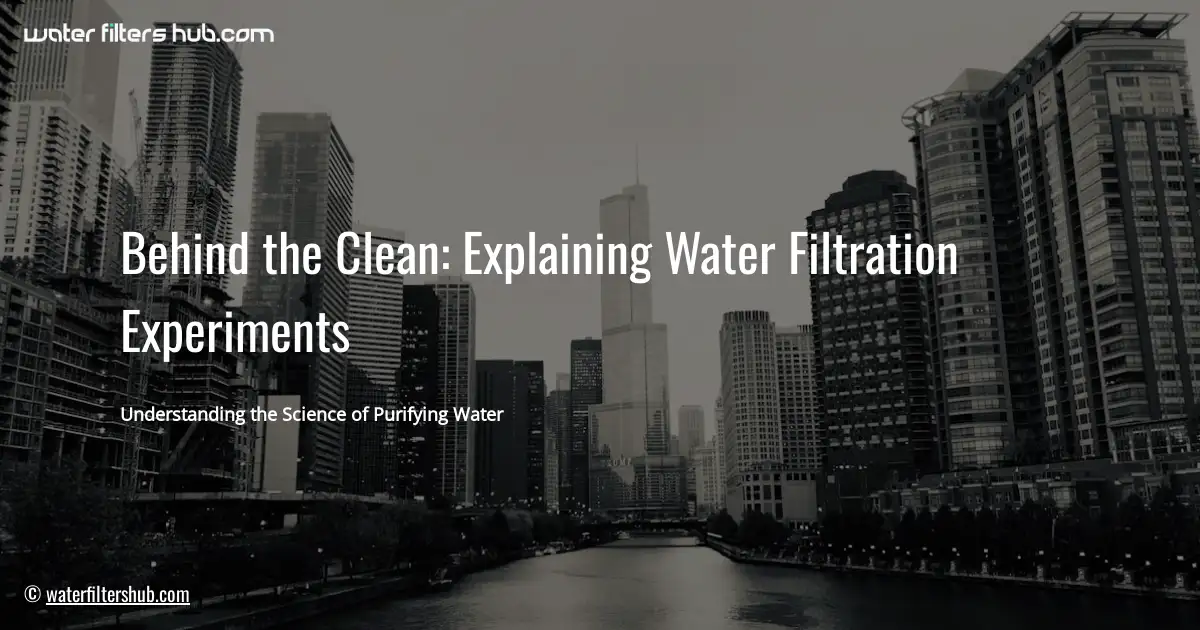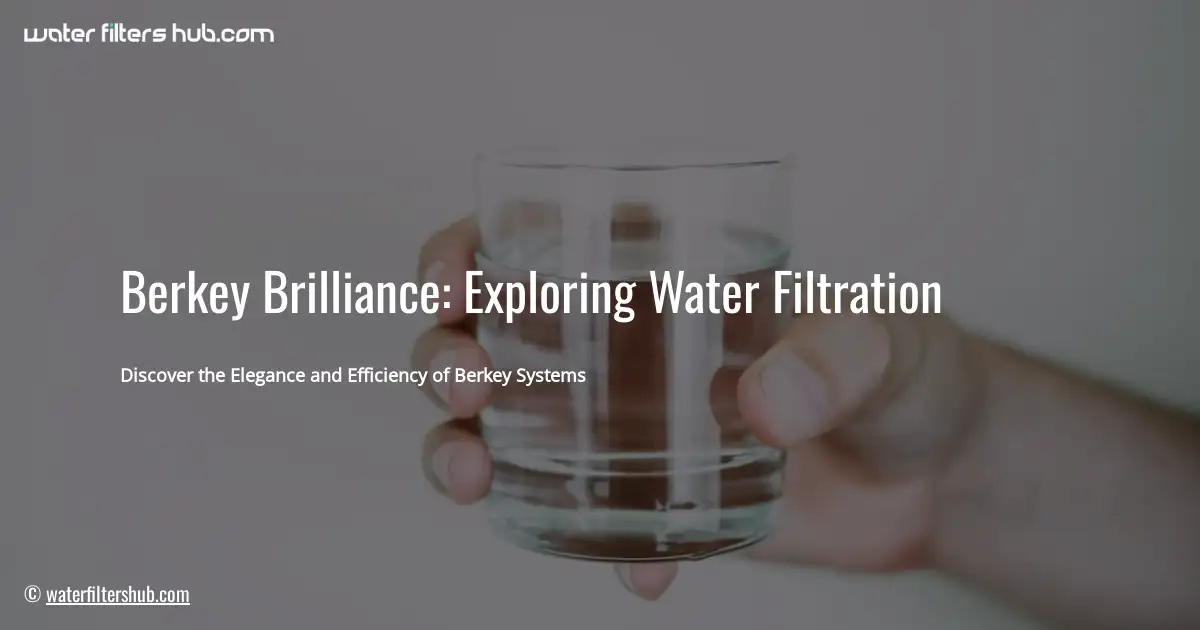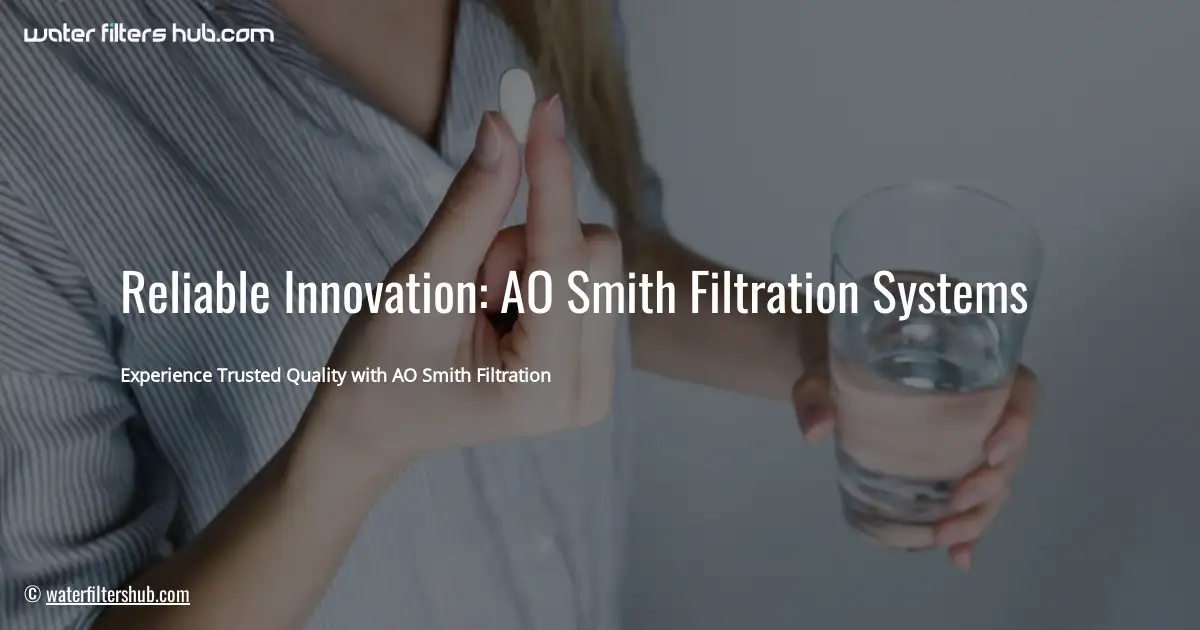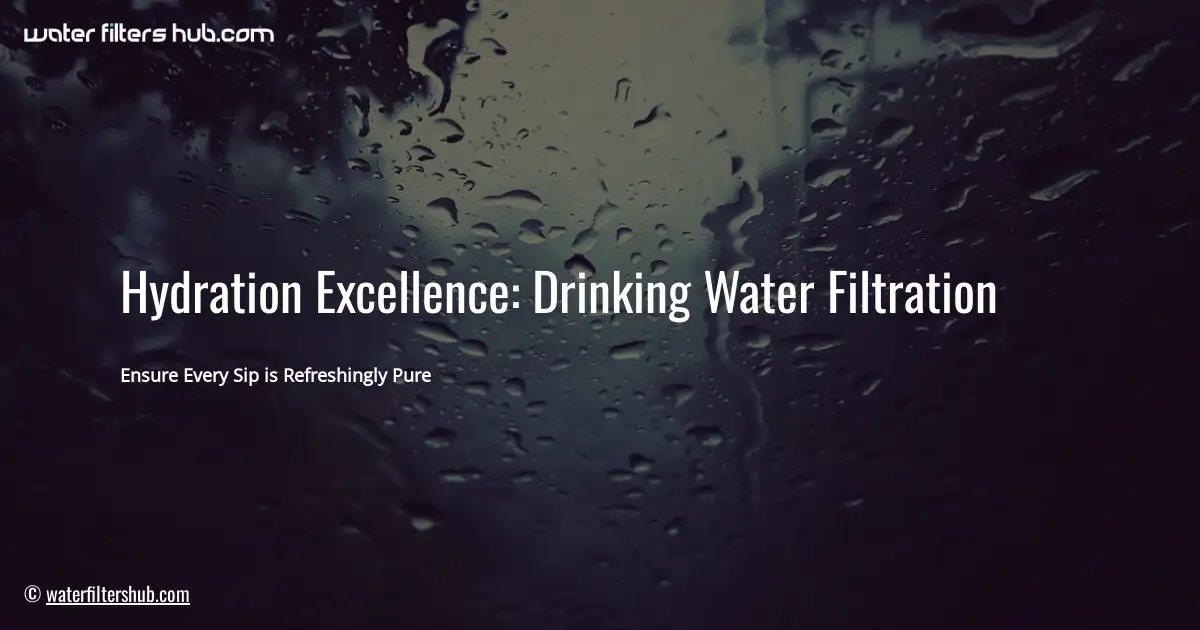Finding the Ideal Water Filter for Your Specific Needs
Whole house water filters are like the superheroes of water purification, guarding your entire home from the evils of contaminated water. They’re the ultimate solution for those who want to ensure every drop of water flowing through their faucets is clean and safe.
Imagine this: you wake up in the morning and turn on the shower, only to be greeted by a refreshing burst of crystal-clear water. No more worrying about chlorine, sediment, or other impurities lurking in your pipes. That’s the power of a whole house water filter!
| Benefit | Explanation |
|---|---|
| Clean, Safe Water: Removes contaminants throughout your home, ensuring every tap dispenses pure water. | |
| Improved Taste and Odor: Eliminates unpleasant tastes and odors, making your water a joy to drink. | |
| Protection for Appliances: Prevents scale buildup and corrosion in water-using appliances, extending their lifespan. | |
| Peace of Mind: Knowing that your family is drinking and using clean water brings priceless peace of mind. |
Under-Sink Water Filters: Convenience at Your Fingertips 💧
Under-sink water filters offer a convenient and effective solution to improve the quality of your drinking water. These filters are installed beneath your kitchen sink, providing clean, filtered water directly from your tap. 🚰
Types of Under-Sink Filters: Activated Carbon vs. Reverse Osmosis
Under-sink filters come in two main types: activated carbon and reverse osmosis. Activated carbon filters use a porous material to trap and remove impurities, such as chlorine, pesticides, and heavy metals. Reverse osmosis filters, on the other hand, use a semipermeable membrane to remove a wider range of contaminants, including bacteria, viruses, and dissolved minerals. 🛡️
| Type of Filter | Pros | Cons |
|---|---|---|
| Activated Carbon | * Affordable * Easy to install * Effective at removing chlorine, pesticides, and heavy metals | * Does not remove all contaminants * Can reduce water flow |
| Reverse Osmosis | * Removes a wide range of contaminants, including bacteria and viruses * Provides high-quality filtered water | * More expensive * Requires professional installation * Can waste water |
Countertop Water Filters: The Perfect Balance of Convenience and Affordability 💦
Types of Countertop Filters
Countertop water filters come in various forms, each with its unique advantages:
-
Gravity-fed filters: These filters use the force of gravity to slowly filter water through a series of filters. They’re easy to use and require no electricity, making them a great choice for those looking for a simple and affordable option.
-
Pitcher-style filters: These filters consist of a pitcher with a built-in filter. They’re convenient for storing and pouring filtered water, making them ideal for everyday use.
Factors to Consider When Choosing a Countertop Filter
When selecting a countertop water filter, consider the following factors:
-
Filtration capacity: Determine the amount of water you need to filter daily and choose a filter with an appropriate capacity.
-
Filtration performance: Different filters remove different contaminants. Consider your water quality concerns and choose a filter that effectively removes the contaminants you’re worried about.
-
Flow rate: The flow rate determines how quickly the filter can produce filtered water. If you need a quick and efficient filter, opt for one with a higher flow rate.
-
Cost: Countertop filters range in price. Consider your budget and choose a filter that fits your financial needs.
Refrigerator Water Filters 🧊💦
Convenience and Filtration at Your Fingertips 🧤💧
Refrigerator water filters offer the ultimate convenience of having filtered water right at your fingertips. 🚰 These filters are seamlessly integrated into your refrigerator, providing you with a constant supply of clean, refreshing water. 💧
The types of refrigerator filters vary, with activated carbon and reverse osmosis being the most common. Activated carbon filters remove chlorine, taste, and odor, while reverse osmosis filters remove a wider range of contaminants, including heavy metals and bacteria. 🛡️
Maintenance and replacement schedules for refrigerator water filters are crucial to ensure optimal performance. 📅 Most filters should be replaced every 6 to 12 months, depending on the model and usage. Regular replacement ensures that your filter continues to effectively remove impurities and provide you with clean, healthy water. 💧
Faucet-Mounted Water Filters: The Quick Fix for Impure Taps 💦
Faucet-mounted filters come in a range of flow rates, measured in gallons per minute (GPM). Higher flow rates mean faster water delivery, but they may compromise filtration efficiency. If you prioritize instant gratification over thorough purification, opt for a filter with a higher GPM.
Filtration efficiency, on the other hand, refers to the filter’s ability to remove specific contaminants. Look for filters with certifications from reputable organizations like NSF International or WQA. These certifications ensure that the filter meets industry standards for removing harmful substances like lead, chlorine, and cysts.
| Flow Rate | Filtration Efficiency |
|---|---|
| High (1-3 GPM) | Moderate |
| Moderate (0.5-1 GPM) | High |
| Low (<0.5 GPM) | Excellent |
So, whether you’re a speed demon or a purification perfectionist, there’s a faucet-mounted filter out there to quench your thirst. Just remember, the perfect balance of flow and filtration will depend on your individual needs.
WHAT WATER FILTERS ARE BEST ON YOUTUBE
Shower Water Filters
Benefits of Removing Impurities from Shower Water 🚿
Showering in water filled with impurities can be a nightmare for your skin and hair. Chlorine, heavy metals, and other contaminants can strip away your skin’s natural oils, leaving it dry, itchy, and irritated. They can also damage your hair, making it dull, brittle, and prone to breakage.
Shower water filters come to the rescue! They act as guardians of your skin and hair, removing these harmful impurities and leaving you with a spa-like showering experience. Your skin will feel soft and supple, and your hair will shine with health and vitality. It’s like giving your body a daily dose of TLC!
Water softeners are the secret weapon for homes plagued by hard water. Imagine stepping into a shower where the water feels like silk against your skin, leaving you refreshed and invigorated. That’s the power of soft water!
- Ion Exchange: These softeners use a resin bed to swap out calcium and magnesium ions for sodium ions, resulting in soft water. They require regular salt replenishment.
- Salt-Free: These softeners use a different technology to alter the structure of calcium and magnesium ions, reducing their ability to form scale. They don’t require salt but may not be as effective in all cases.
- Soft, Luxurious Water: Enjoy silky-smooth showers, softer laundry, and dishes that sparkle.
- Reduced Scale Buildup: Soft water prevents scale from forming in pipes, appliances, and fixtures, extending their lifespan.
- Improved Skin and Hair: Soft water is gentler on your skin and hair, leaving them feeling smoother and healthier.
- Increased Soap and Detergent Efficiency: Soft water allows soap and detergents to work more effectively, saving you money and reducing waste.
- Salt Consumption: Ion exchange softeners require regular salt replenishment, which can add to your operating costs.
- Sodium Content: Ion exchange softeners increase the sodium content of your water, which may be a concern for individuals on sodium-restricted diets.
- Maintenance: Water softeners require regular maintenance, including backwashing and filter cleaning.
If you’re tired of hard water woes, consider investing in a water softener. It’s the key to unlocking the luxury of soft, refreshing water in your home. 🏠💧
Distillation Water Filters 💧
Distillation water filters are like the ultimate purifiers, using heat to turn water into vapor, leaving behind impurities. 🧙♂️ The resulting vapor is then condensed back into pure H2O, giving you water as clean as a whistle. 🚰
Types of distillation filters range from countertop models for your kitchen to whole-house systems that treat all the water coming into your home. 🏠 But here’s the catch: distillation takes energy, so these filters can be a bit more expensive to run. 💸
However, if you’re looking for the purest possible water, distillation is the way to go. It’s the gold standard for removing contaminants like heavy metals, bacteria, and viruses. 🛡️ So, if you’re serious about getting the cleanest water possible, consider investing in a distillation water filter. It’s like giving your body a spa day every time you turn on the tap! 🚿✨
UV Water Filters
UV water filters are like superheroes in the water purification world! They use ultraviolet (UV) light to zap nasty bacteria and viruses, making your water sparkling clean. 🦠🚫 These filters are particularly effective against microorganisms that can cause waterborne illnesses like E. coli and Salmonella.
UV filters come in various forms, from whole-house systems that protect your entire home’s water supply to under-sink models that target specific taps. No matter the size, they all harness the power of UV light to eliminate harmful microbes, giving you peace of mind every time you turn on the faucet. 🚰🛡️
Conclusion
Tips for Choosing the Best Water Filter
“Water is the elixir of life,” they say. And with so many water filters on the market, choosing the right one for your needs can be like navigating a maze. But fear not, my friend! Here are some handy tips to help you find the perfect match:
- Consider your water source: Is it city water, well water, or something else? Different sources have different contaminants, so it’s important to choose a filter that can handle the specific challenges of your water supply.
- Think about your budget: Water filters come in a wide range of prices, so it’s important to set a budget before you start shopping. Remember, the best filter is the one that fits your needs and your wallet.
- Read reviews: Before you buy any filter, take some time to read reviews from other users. This can give you valuable insights into the filter’s performance, ease of use, and customer service.
- Don’t forget maintenance: All water filters require some level of maintenance, so be sure to factor in the cost and time required for filter replacements and cleaning.
- Trust your gut: Ultimately, the best water filter for you is the one that you feel confident in. If you have any doubts about a particular filter, it’s always better to err on the side of caution and choose a different one.
By following these tips, you can be sure to find the perfect water filter for your needs and enjoy the peace of mind that comes with knowing that you’re drinking clean, healthy water.
CHOOSING HOME WATER FILTERS & OTHER WATER TREATMENT SYSTEMS | CDC
DRINKING WATER
HOW LONG DO BERKEY WATER FILTERS LAST
HOW OFTEN SHOULD WATER FILTERS BE CHANGED
HOW MUCH ARE WATER FILTERS
HOW MUCH ARE WATER FILTERS
HOW LONG DO ZERO WATER FILTERS LAST







Leave a Reply